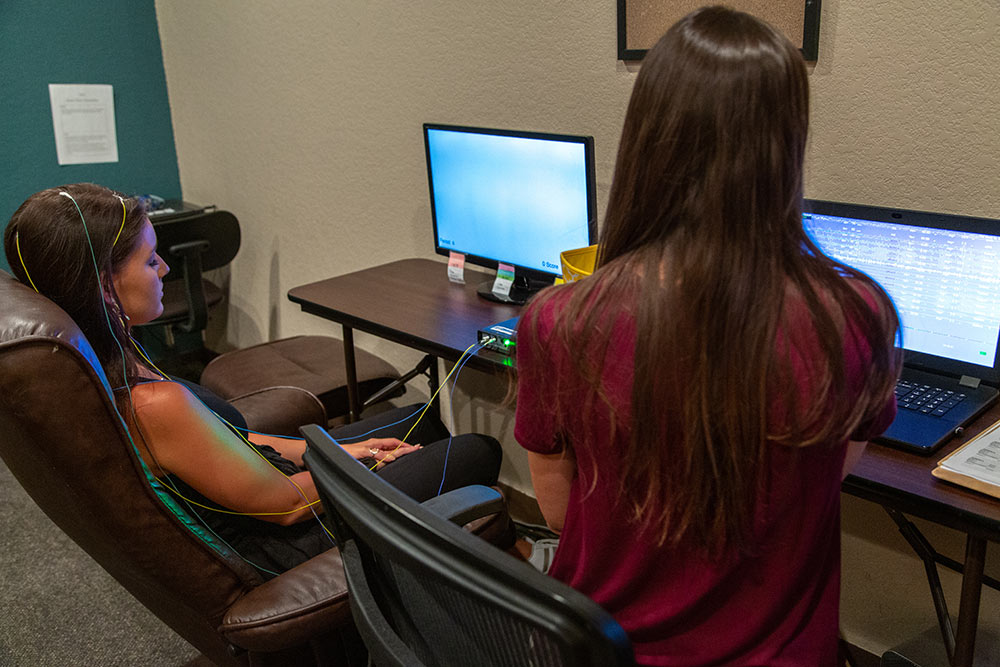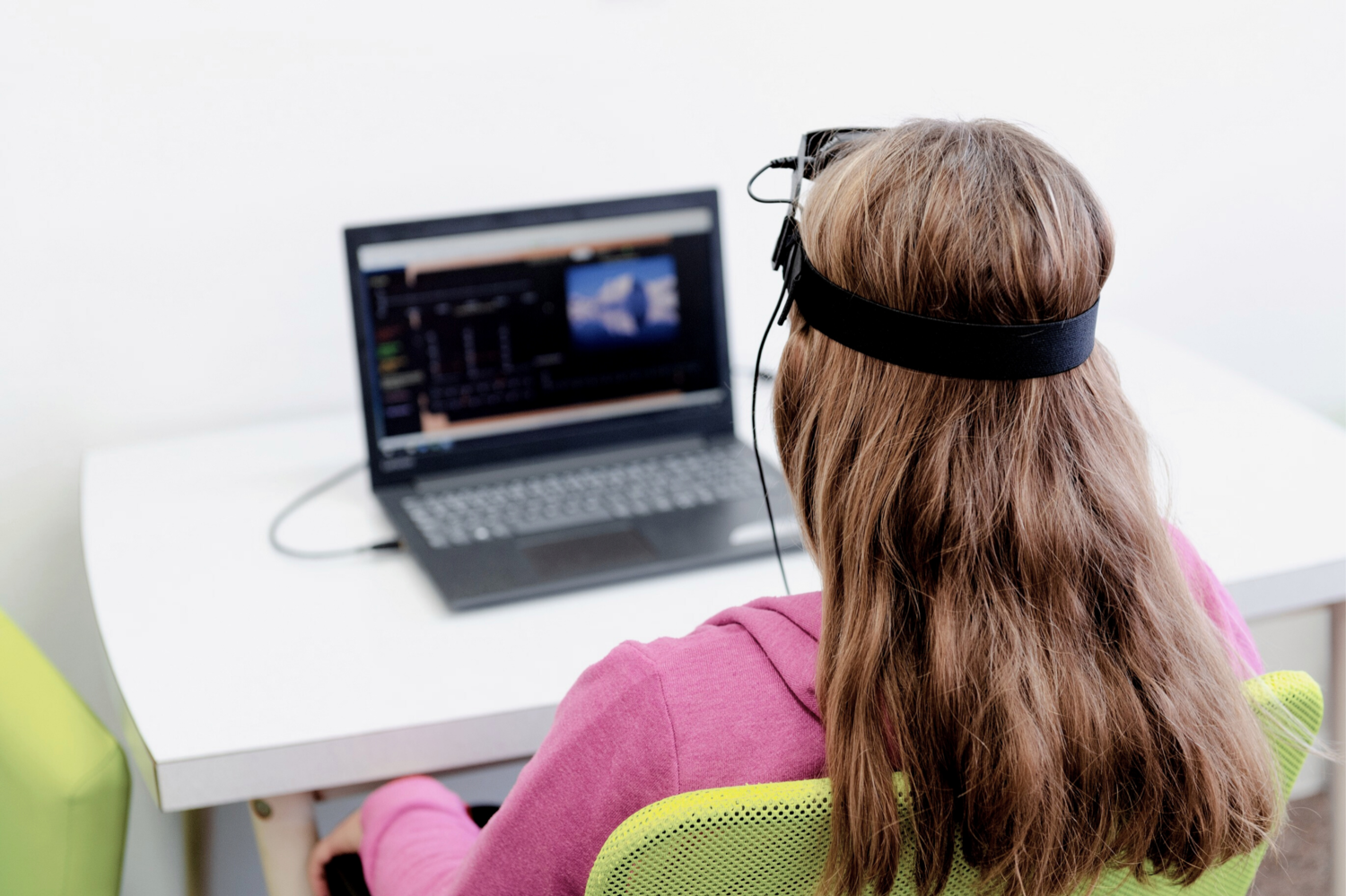These 4 Benefits Of Neurofeedback Training May Point To The Reason Why The Method Seems To Be So Effective
Neurofeedback training is a revolutionary form of brain training that has the potential to transform our lives. It is based on the idea that by providing feedback on changes in our brain activity, we can learn to control and regulate our own brain patterns. The potential benefits of neurofeedback training are far-reaching, from improved mental and emotional wellbeing to better overall physical health. In this article, we will explore the many potential benefits of neurofeedback training, and discuss how it can help improve our lives.

Improved Focus & Concentration
Neurofeedback training helps to improve focus and concentration, allowing people to stay on task and complete tasks more efficiently.
Neurofeedback training is an emerging field of technology that is helping to improve focus and concentration in people of all ages. Neurofeedback is a type of brain training that uses sophisticated techniques to measure and train the brain’s electrical activity. It is based on the concept of neuroplasticity, which is the brain’s ability to adapt and change in response to external stimuli. The goal of neurofeedback is to help people become more aware of their cognitive processes, so they can make changes to improve their performance.
Neurofeedback has been used to help people with conditions such as ADHD, autism, traumatic brain injury, and epilepsy. It has also been used to help people with mental health issues such as depression, anxiety and stress. Now, neurofeedback is being used to help people improve their focus and concentration.
Neurofeedback works by providing feedback to the brain about its electrical activity. This information is used to help the brain learn to regulate itself better. The brain is trained to increase or decrease its activity in specific areas in response to the feedback. This helps to improve focus and concentration, as well as other cognitive abilities.
One of the most common types of neurofeedback is called EEG (electroencephalography) training. Dr. Victoria Ibric of Neurofeedback & Neurorehab Institute of Pasadena is a world-renowned expert on EEG, and if you’re located in Los Angeles CA and searching for a well-respect neurofeedback training provider, you may want to consider reaching out to Dr. Ibric - one of the most well-rated providers of neurofeedback Los Angeles has to offer. During an EEG session, electrodes are placed on the scalp, and the electrical activity of the brain is monitored and recorded. This data is used to provide feedback to the brain about its electrical activity. The feedback helps the brain to recognize patterns of activity and to learn to regulate its activity better.
Neurofeedback is also used to help people with sleep disorders. Poor sleep can lead to difficulty concentrating and focusing, so it is important to get good quality sleep. Neurofeedback can help the brain to relax and enter a more restful state, so it is easier to fall asleep and stay asleep.
Neurofeedback training is a safe and effective way to help people improve their focus and concentration. Research has shown that it can help to improve cognitive performance in areas such as reaction time and working memory. It can also help people with mental health conditions to reduce their symptoms.
Neurofeedback can be done in a variety of settings, including at home, in the office, or in a clinical setting. It can be done with an individual or in a group. The length of training can vary from a few sessions to several weeks, depending on the type of program and the individual’s needs.
Neurofeedback is an effective way to help people improve their focus and concentration. It is a safe and non-invasive way to train the brain to regulate itself better. With regular practice, neurofeedback can help to improve cognitive performance and reduce symptoms of mental health conditions.

Reduced Anxiety & Stress
Neurofeedback training can help to reduce anxiety and stress. It helps to relax the body, mind and spirit, allowing individuals to feel calmer and better able to cope with stress.
Neurofeedback training is a form of therapy that helps individuals gain control over stress and anxiety. It is a form of brain training that utilizes biofeedback to help people learn how to calm their nervous system and reduce their emotional reactivity. Neurofeedback training is a non-invasive and drug-free way to improve emotional regulation, reduce stress and anxiety, and increase overall well-being.
The goal of neurofeedback training is to help individuals become aware of their emotional states and learn how to regulate their own emotions. During a neurofeedback session, individuals are taught to recognize the patterns of their brain waves and how they relate to their emotional state. They are then taught to recognize and respond to their emotional signals in ways that will help them reduce stress and anxiety.
Neurofeedback training can be used to help people with a variety of anxiety and stress-related issues. It can help those with generalized anxiety disorder, panic disorder, post-traumatic stress disorder, and other forms of psychological distress. It can also be used to help improve focus and concentration, reduce impulsivity, and increase emotional regulation.
Neurofeedback training is based on the idea that the brain can be trained to recognize certain patterns and respond appropriately. Through neurofeedback training, individuals learn to recognize and respond to their emotional states in ways that will help them reduce stress and anxiety. This type of training can help people become more aware of their body’s physical and emotional responses to stressful situations and learn how to respond in ways that help them relax and manage their stress levels.
Neurofeedback training has been found to be an effective way to reduce stress and anxiety. It has been used to help individuals with a variety of psychological disorders, including anxiety and depression. Neurofeedback training has also been used to help individuals with attention deficit hyperactivity disorder (ADHD) and other learning disabilities.
Neurofeedback training is a safe and effective way to reduce stress and anxiety. It is a non-invasive and drug-free way to improve emotional regulation and overall well-being. If you are struggling with stress and anxiety, neurofeedback training may be a good option to help you better manage your emotions and increase your overall well-being.

Improved Cognitive Performance
Neurofeedback training helps to improve cognitive performance by improving brain wave patterns. This leads to improved learning, memory, and problem-solving abilities.
Neurofeedback training is an increasingly popular technique for improving cognitive performance. This training, which is also known as electroencephalogram or EEG training, uses feedback from real-time recordings of electrical activity in the brain to help people learn to regulate their brainwave patterns and enhance their cognitive functioning. Many studies have shown that neurofeedback training can lead to improved cognitive performance, including improved memory, attention, and executive functioning.
The basic premise behind neurofeedback training is that by providing feedback about the brain's electrical activity, people can learn to control their brainwaves and enhance their cognitive functioning. During training, electrodes are placed on the scalp to measure electrical activity in the brain, and this information is then used to provide feedback to the person. Through this feedback, the person can learn to control their brainwave patterns and improve their cognitive performance.
One of the most commonly used techniques in neurofeedback is called alpha-theta training. Alpha-theta training is designed to help people learn to increase the amount of alpha and theta brainwaves in their brain, which are associated with relaxation and focused attention. By increasing alpha and theta brainwaves, people can improve their focus, attention, and executive functioning.
Several studies have found that neurofeedback training can lead to improved cognitive performance. For example, a study published in the journal Cognitive Neuropsychology found that neurofeedback training led to improved memory and attention in participants. Another study published in the journal Neuropsychology found that neurofeedback training led to improved executive functioning in participants.
In addition to improving cognitive performance, neurofeedback training has also been found to be beneficial for physical health. A study published in the journal Psychosomatic Medicine found that neurofeedback training led to improved physical health and reduced stress levels in participants.
Overall, neurofeedback training can be an effective way to improve cognitive performance. By providing feedback about the brain's electrical activity, neurofeedback training can help people learn to control their brainwave patterns and enhance their cognitive functioning. Several studies have found that neurofeedback training can lead to improved memory, attention, and executive functioning, as well as improved physical health and reduced stress levels.

Improved Sleep Quality
Neurofeedback training can help to improve sleep quality by calming the nervous system and helping individuals to get better quality sleep. This allows individuals to wake up feeling refreshed and energized.
Neurofeedback training has become increasingly popular as a way to improve sleep quality and reduce symptoms of insomnia. Neurofeedback is a form of biofeedback that uses electrical signals from the brain to help people learn how to control certain brain functions. By learning to regulate brain activity, neurofeedback can help people improve their sleep patterns and get better rest.
Sleep is an important part of overall health, but for many people, getting a good night’s sleep can be difficult. Insomnia can cause fatigue, anxiety, and irritability and make it hard to focus during the day. Neurofeedback training can help people learn how to better regulate their brain activity, which can help them relax and sleep better.
Neurofeedback training typically involves electrodes being placed on the head to measure electrical activity. This information is then used to create a personalized feedback program. During the training, the person will be asked to focus on certain tasks or activities, such as relaxing their muscles or focusing on their breathing. As they do this, they will receive real-time feedback on their brain activity. This feedback can help them learn how to better control their brain activity and improve their sleep.
Research has shown that neurofeedback can be effective in reducing symptoms of insomnia. In one study, participants who underwent neurofeedback training reported improved sleep quality, reduced fatigue, and increased alertness. Neurofeedback can also help people learn how to relax their mind and body, which can help reduce stress and anxiety.
Neurofeedback training is a safe and effective way to help people improve their sleep quality, reduce fatigue, and increase alertness. It can also help people reduce stress and anxiety, which can improve overall health and well-being. If you’re struggling with insomnia, consider talking to your doctor about neurofeedback training.
This YouTube Video May Be Helpful: “Watch Neurofeedback In Action!”
Visit The Neurofeedback & NeuroRehab Institute of Pasadena Google Business Profile:
Neurofeedback & NeuroRehab Institute of Pasadena
65 N Madison Ave Suite 404, Pasadena, CA 91101
(626) 577-2202

